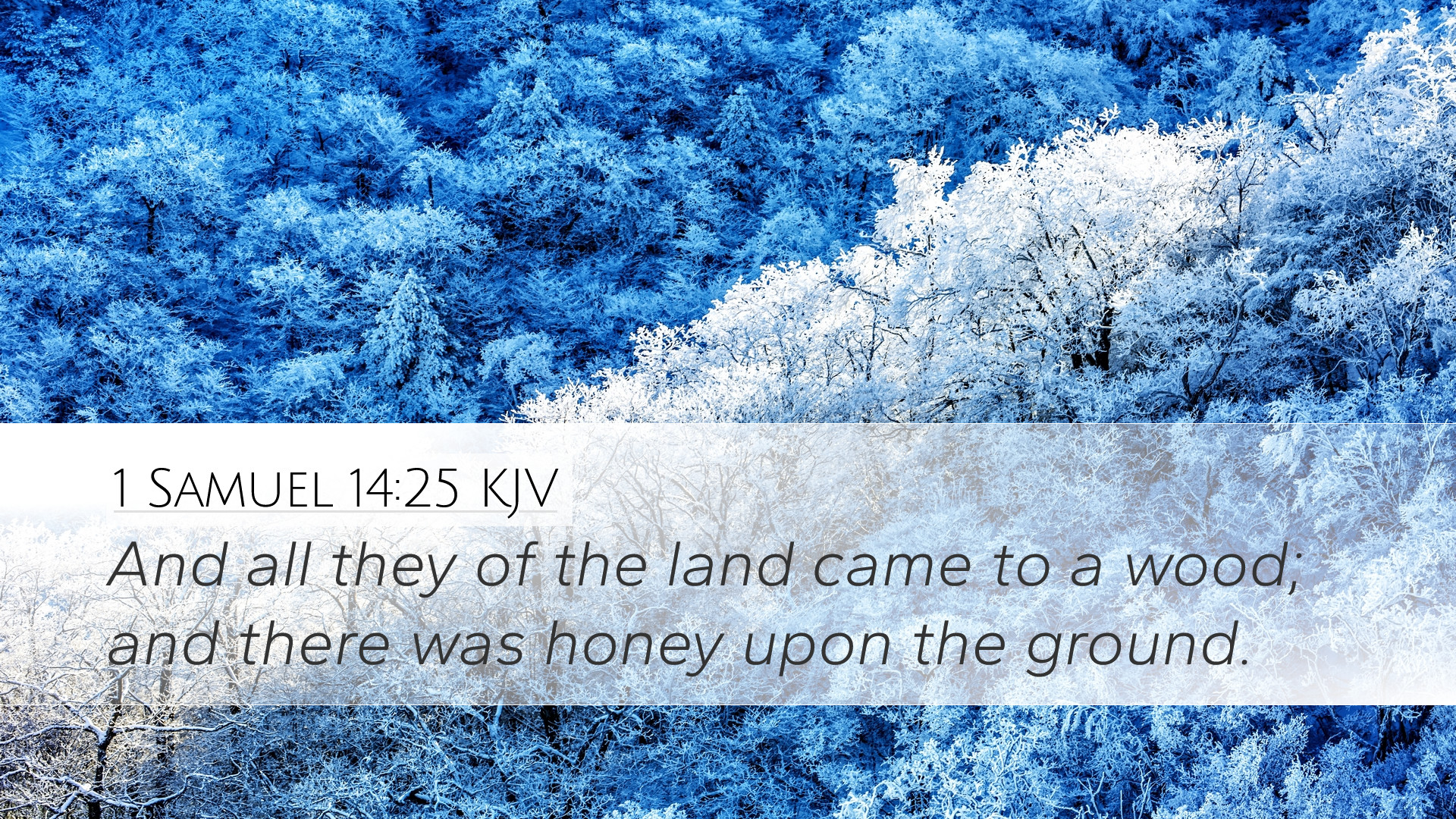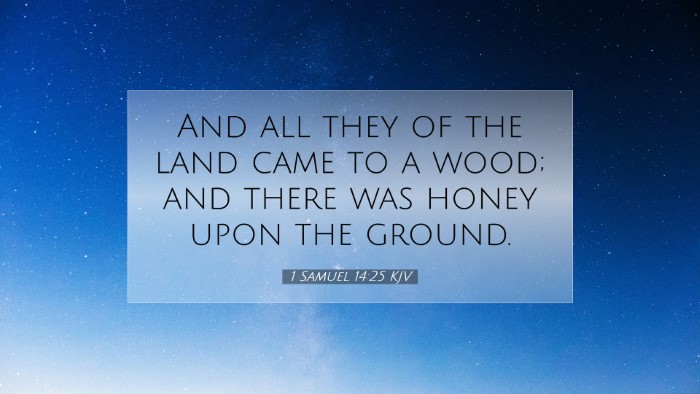Commentary on 1 Samuel 14:25
Bible Verse: 1 Samuel 14:25 - "Now all the people of the land came to a forest; and there was honey on the ground." (NKJV)
Introduction
This verse is a notable part of the narrative during a season of battle wherein the Israelites, led by King Saul, confront the Philistines. It offers profound insights into human nature, the need for sustenance, and divine providence.
Contextual Overview
To fully appreciate 1 Samuel 14:25, it is crucial to understand the broader context of the chapter. The Israelites are in the midst of a significant military engagement. Saul has restrained his troops from eating, which will play a key role in the unfolding events. The presence of honey in the forest symbolizes both physical nourishment and a test of obedience to the king's command.
Insights from Public Domain Commentaries
Matthew Henry's Commentary
Matthew Henry reflects on the nature of the forest and the honey found therein, highlighting that this was a land of plenty. He asserts that the honey represents the goodness of the Lord, who provides for His people even in difficult circumstances. However, the sugary treat becomes a point of contention as the people are famished from fighting.
Henry posits that the anxiety and burden of war often lack consideration for the natural provisions God has made available. The forest teeming with honey serves as a metaphor for the abundance of God’s grace and blessings, often overlooked in times of strife.
Albert Barnes' Notes on the Bible
Albert Barnes expands on the implications of the honey's location: it is found in a forest, suggesting a hidden provision that requires effort to discover. He interjects a vital point concerning the command from Saul and the people's response to it. Barnes notes that the soldiers are ready to disregard the king’s command under the duress of hunger.
Moreover, Barnes highlights the communal aspect of sharing the honey. He emphasizes that spiritual nourishment and physical sustenance often go hand-in-hand, suggesting that God’s providence is accessible to all who seek it, even in the midst of conflict.
Adam Clarke's Commentary
Adam Clarke discusses the historical ramifications of the verse, noting how the context of dietary restrictions and war is integral to understanding Israel’s complex relationship with divine laws and human authorities. Clarke stresses the impulsiveness of the soldiers who, driven by physical need, consume the honey in violation of Saul’s command, thus illustrating a tension between divine law and earthly governance.
Clarke argues that the inclusion of such a detail as honey signifies not just physical sustenance but also the joyful blessings God bestows upon His people. The sweetness of honey stands in stark contrast to the bitterness of battle, capturing the duality of struggle and blessing that characterizes the human experience.
Theological Reflection
This passage invokes deep theological reflection about the nature of obedience and the human condition in relation to divine providence. It invites believers to question how they respond to God’s provision in dire situations. Are we, like Saul's troops, quick to forsake divine instructions for immediate gratification?
Practical Applications
- Awareness of Divine Provision: Believers are encouraged to remain mindful of God’s goodness, even amid trials.
- The Nature of Obedience: This verse serves as a reminder of the importance of obedience to God’s commands, and the consequences of neglecting them.
- Community and Sharing: Clarke’s commentary on communal consumption of honey can urge congregations to support one another, sharing the blessings God provides.
- Spiritual and Physical Nourishment: Pastors may emphasize the necessity of both physical and spiritual sustenance within their ministries.
Conclusion
In summary, 1 Samuel 14:25 encapsulates a rich tapestry of themes relevant to the believer's journey. The insights gathered from Matthew Henry, Albert Barnes, and Adam Clarke converge towards the idea that even in the chaos of life’s battles, God's provisions are present and should be approached with a heart of obedience and gratitude.


